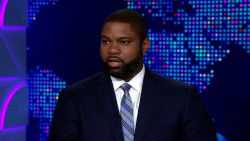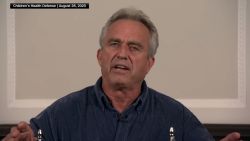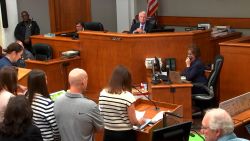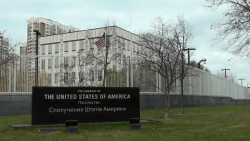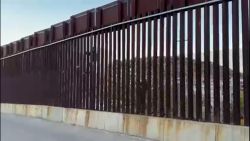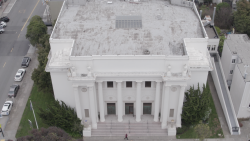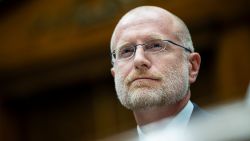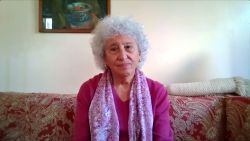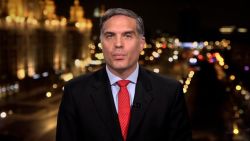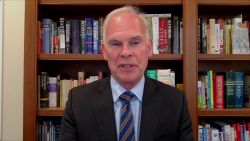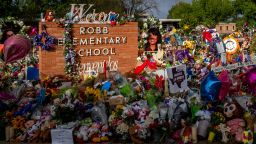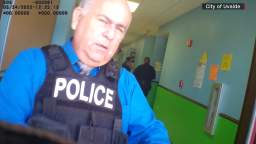Uvalde County Sheriff Ruben Nolasco does not appear to have completed an active shooter training course, according to documents CNN obtained Monday from the Texas Commission on Law Enforcement, the regulatory agency for peace officers in Texas.
The information comes on the heels of a contentious Uvalde County Commission meeting, during which Richard Carter, an attorney with expertise in police actions, presented the results of an independent review – which the county hired him to conduct – of the Sheriff’s Office policies at the time of the Robb Elementary School massacre.
According to Carter, the sheriff’s office did not have an active shooter policy on May 24, when a teenaged gunman with a semi-automatic rifle stormed the school and killed 19 students and two teachers.
Active shooter training is not required by county or state rules for people who aren’t school-based law enforcement officers. And an active shooter response policy is not required by Texas law of law enforcement agencies, according to the report.
County commissioners met behind closed doors for more than 90 minutes to review the report and meet with victims’ family members. Community members called for Nolasco’s ouster at the meeting following CNN’s reporting last week about his failure to mount a response at the school and his failure to share critical information about the shooter.
Nolasco was one of the senior law enforcement officials on the scene of the massacre.
After the meeting, Carter also appeared to indicate Nolasco hadn’t received active shooter training.
“He has not taken the course that his officers – all but three of his officers – have. He plans on doing that in the immediate future,” Carter said. “What I understood was, he wanted to make sure that all of his people that might go out were trained,” before he received his own training.
In an email to CNN that included Nolasco’s records, law enforcement commission spokesperson Gretchen Grigsby said that “active shooter training is only required for school-based law enforcement officers as part of a one-time certification,” but she expected the topic would be a subject of discussion during the next legislative session.
CNN has reached out to Nolasco about the contents of the report but has not received a response.
CNN has also reached back out to the Texas Commission on Law Enforcement to clarify the contents of Nolasco’s training history, and has not received a response.
Sheriff’s office has since adopted an active shooter policy
The conclusion of Carter’s review comes after months of reporting by CNN about the law enforcement response to the shooting, including that Nolasco had vital information about the shooter that was not shared as the incident unfolded. It was just the latest revelation of senior law enforcement officers not taking command or following protocol to stop an active shooter and get swift treatment to victims.
Carter’s inquiry, which was conducted over about two months, dealt strictly with the sheriff’s office’s policies, he said Monday.
The office has since adopted an active shooter policy, Carter said during the public portion of Monday’s meeting.
But at the time of the shooting – the worst at a K-12 school in the US in nearly a decade – its handbook only defined “active shooter,” Carter said. And while there were “portions that dealt with critical incidences and how officers would respond,” it did not constitute an active shooter policy, he added.
Whether the sheriff’s office had an active shooter policy, however, is “no excuse for what happened” the day of the shooting, one community member said in a public comment portion of the meeting Monday.
“Our officers in Uvalde County, including the city, school, and county, don’t live under a rock,” Diana Olvedo-Karau said. “Active shooter incidents happen across our nation all too often… so to step back and give the impression that because there was no policy there’s no accountability, is unacceptable, inexcusable, and shameful.”
Carter did not examine the actions of the agency’s personnel on the scene of the shooting, he said, which, along with the broader law enforcement response, have been highly scrutinized.
Heartbroken families deal with report findings
The grandmother of shooting victim Amerie Jo Garza said she was in “total shock” the Sheriff’s Office didn’t have an active shooter policy in place.
“I could not believe that with all the mass shootings that have taken place, just in Texas alone, that there was no policy in place. It was a total shock,” Berlinda Irene Arreola said on CNN’s Anderson Cooper 360.
Arreola said it was difficult seeing Mariano Pargas, acting Uvalde police chief on the day of the shooting, at the meeting.
“It was very hard, and It was very sad,” she said of Pargas, who has since resigned but is still a county commissioner.
Arreola said that she believes he had plenty of time to take control of the incident but that “instead he ran in the other direction.”
“So, seeing him for the first time was very, very hurtful,” she said.
Arreola said the upcoming holidays are going to be a difficult time for her family without Amerie.
“My son and my daughter-in-law just can’t keep it together to be able to enjoy the holidays. So it’s going to be different, definitely different this year and very sad. Very sad,” she said.
Massive response criticized for failures
In the months since the shooting, criticism of law enforcement’s response has focused on its failure to follow the main tenets of post-Columbine policies to immediately take down an active shooter. Instead, acting on the early and erroneous assessment that the gunman was barricaded, as opposed to an active shooter with his victims surrounding him inside two adjoining classrooms, police waited 77 minutes before confronting him.
Much of the initial criticism focused on Uvalde School Police Chief Pedro “Pete” Arredondo, who had said he never considered himself in charge the day of the shooting. He was ultimately fired in August.
In the months since the shooting, however, it’s become clear the failures that day went far beyond the scope of the small school police force. According to a preliminary report by a Texas House of Representatives investigative committee, 376 officers from local, state and federal agencies were on the scene of the massacre.
Pargas, who remains an elected county commissioner, resigned from the police department after CNN reported he knew children needed rescuing and did not organize help.
Separately, a Texas Ranger and a state police captain are under review for their actions or inaction the day of the shooting, and a state police sergeant was terminated. Another officer who quit the state police force and took a job with the Uvalde school district was also fired after CNN reported she was under investigation for her actions during the shooting.
CNN’s Dakin Andone and Amy simonson contributed to this report.




